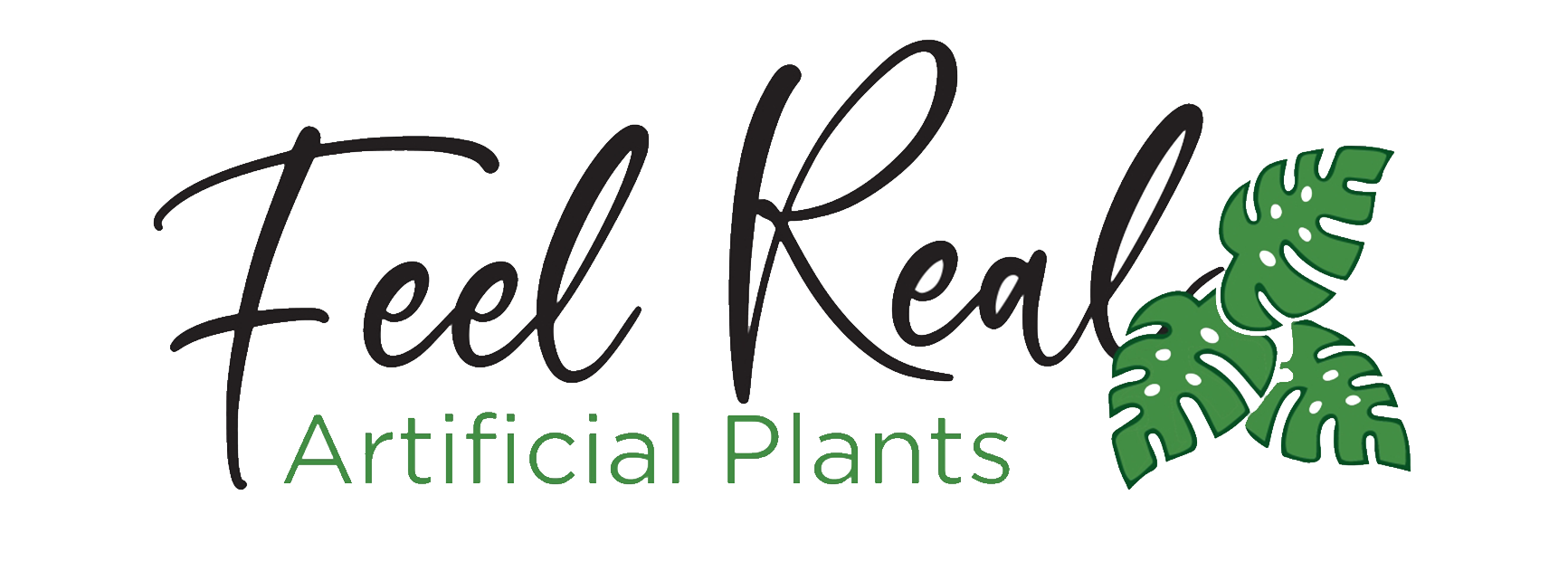The artificial plant industry is blossoming, fueled by the dual desires for everlasting greenery and minimal maintenance. As consumer preferences evolve, so does the landscape of artificial plant wholesaling. This article delves into the current trends shaping the industry and forecasts the vibrant future of artificial plant distribution.

– The Current State of Artificial Plant Wholesaling
The artificial plant market has experienced a remarkable surge in demand, becoming an integral component of interior and exterior decoration across the globe. This growth is not just a trend but a reflection of a deeper shift in consumer preferences towards sustainable, maintenance-free alternatives to real plants. Artificial plants offer the perfect blend of beauty and practicality, making them a popular choice for a wide array of customers.
1. Global Market Expansion
The appeal of artificial plants has transcended borders, reaching customers in the US, Europe, Australia, and the Middle East, etc. This widespread popularity can be attributed to several key factors. Firstly, the global push towards more sustainable living environments has made the low environmental impact of artificial plants an attractive proposition. Unlike real plants, they require no water, pesticides, or fertilizers, contributing to water conservation and reducing chemical runoff.
Secondly, the versatility and durability of artificial plants make them ideal for a variety of settings, from corporate offices and retail spaces to outdoor landscapes and private homes. They remain vibrant and lush regardless of season, offering a cost-effective solution for beautifying spaces without the upkeep required by real vegetation.
2. Wholesale Dynamics
Wholesalers and retailers play a pivotal role in the distribution chain, bridging the gap between manufacturers and a diverse clientele. The expansion of their reach is a testament to their ability to adapt to market needs, providing products that cater to the aesthetic and practical demands of both individual and corporate clients. This includes offering a wide range of options, from exotic species to classic designs, ensuring there is something for every taste and setting.
Our factory, situated at the vanguard of this booming industry, has made significant strides in offering products that are not only diverse in style but also unbeatable in price. Our commitment to quality and affordability has set us apart, allowing us to establish strong relationships with distributors, wholesalers, chain stores, and retailers across our target markets.
3. Innovation through OEM Services
One of the key differentiators for our factory is our bespoke OEM (Original Equipment Manufacturer) services. Recognizing the unique needs of our clients, we have leveraged our manufacturing capabilities to offer customized solutions. This flexibility allows our partners to request specific designs, sizes, and features, catering to the unique preferences of their end customers. Our ability to adapt and respond to these bespoke requirements has further entrenched our position as a leader in the industry, driving home the importance of innovation and customer focus in sustaining growth.

– Emerging Trends in the Artificial Plant Market
Several key trends are currently shaping the artificial plant industry:
1. Sustainability and Eco-Friendly Practices
The drive towards more eco-friendly production methods is reshaping the artificial plant industry. Consumers are increasingly aware of their environmental impact, prompting a shift towards materials that are recyclable and less harmful to the environment. Our commitment to sustainability is reflected in our manufacturing processes, where we prioritize materials that meet these emerging consumer preferences.
2. Technological Advancements in Manufacturing
Technological innovation is set to redefine the quality and variety of artificial plants. With advancements in 3D printing and material science, we can now produce replicas that are nearly indistinguishable from their natural counterparts. This leap in quality, combined with our factory’s capability to offer a full range of styles and OEM services, positions us at the forefront of meeting global demand for high-quality, diverse artificial plant solutions.
3. Customization and Personalization
The demand for personalized and customized artificial plants is on the rise. Retailers, wholesalers, and distributors are seeking unique products tailored to their specific market needs. Our OEM service is designed to meet this demand, allowing clients to specify their requirements, from design to packaging, ensuring that the final product reflects their brand identity and meets their customers’ expectations.
4. Expansion of Online Sales Channels
The digital transformation has significantly impacted how artificial plants are bought and sold. Online marketplaces and direct-to-consumer sales platforms are becoming increasingly important. For wholesalers and distributors, embracing e-commerce and optimizing online sales strategies are crucial for reaching a wider audience. Our factory supports our partners through drop-shipping services and high-resolution product images, facilitating a seamless online selling experience.
5. Growing Markets and New Opportunities
Emerging markets in the Middle East, along with established markets in the US, Europe, and Australia, continue to offer significant growth opportunities for artificial plant wholesalers. Urbanization, changing lifestyle trends, and the increasing use of artificial plants in commercial spaces are driving demand. Our strategic location and production capacity enable us to efficiently serve these diverse markets, ensuring timely delivery and competitive pricing.
6. Increased Use in Commercial Spaces
Artificial plants are becoming a staple in commercial interior design, from corporate offices to retail spaces. Their low maintenance, versatility, and aesthetic appeal make them ideal for enhancing work environments and customer experiences. We anticipate a continued increase in demand from commercial sectors, further diversifying our client base.
7. The Role of Artificial Plants in Health and Well-being
As awareness of the importance of mental health and well-being grows, so does the use of artificial plants in creating restorative environments. The biophilic design, which incorporates natural elements into indoor spaces, has been shown to reduce stress and improve well-being. Artificial plants offer a practical and long-lasting solution to integrate greenery into such designs, aligning with our commitment to enhancing life through our products.

– Predictions for the Future of Artificial Plant Wholesaling
As we gaze into the horizon of artificial plant wholesaling, several key trends emerge, signaling a transformative period ahead. The industry’s trajectory is influenced by an increasing emphasis on sustainability, the customization capabilities afforded by technology, and the digitalization of sales channels. These elements, coupled with societal shifts, paint a picture of a vibrant future for artificial plants.
1. Sustainability as a Guiding Principle
Sustainability will continue to be a major driving force, not just as a trend but as a fundamental principle guiding the industry. Consumers are becoming more environmentally conscious, seeking products that align with their values of reducing carbon footprints and supporting ethical manufacturing practices.
In response, manufacturers and wholesalers will likely invest more in eco-friendly materials and processes, such as biodegradable pots or recycled plastics, to meet this demand. This shift towards sustainability will not only appeal to the environmentally conscious market but will also serve as a differentiator in an increasingly competitive landscape.
2. The Rise of Customization and Personalization
The demand for personalized products is on the rise, and the artificial plant industry is no exception. Thanks to advancements in manufacturing technologies and the integration of AI, businesses will be able to offer unprecedented levels of customization.
Customers will have the ability to tailor their orders to fit specific design preferences, sizes, and even choose materials that align with their environmental values. This trend towards personalization will enhance customer satisfaction and loyalty, as buyers increasingly look for products that reflect their unique style and values.
3. Digital Transformation and Technological Advancements
The future will see a continued shift towards digital sales channels, with e-commerce becoming the norm rather than the exception. Technologies like Artificial Intelligence (AI) and Augmented Reality (AR) will play a pivotal role in enhancing the online shopping experience.
AI can offer personalized shopping experiences, recommend products based on browsing history, and provide customer service through chatbots. Meanwhile, AR technology will allow customers to visualize how artificial plants would look in their space before making a purchase, reducing the uncertainty that often accompanies online shopping.
4. Emergence of New Consumer Segments
Changes in lifestyle and work environments, accelerated by recent global events, are expected to create new consumer segments. The rise of home offices and remote work has increased interest in home decor, including artificial plants, to create pleasant and green workspaces.

Additionally, younger generations, who prioritize sustainability and personalization, are becoming significant consumers in the market. Catering to these emerging segments will require wholesalers to be agile and responsive to changing preferences, offering products that are not only aesthetically pleasing but also environmentally responsible and customizable.
– Positioning Your Business for Success
In an industry as dynamic as artificial plant wholesaling, positioning your business for long-term success requires a multifaceted approach. Key strategies include not only adapting to technological advancements and consumer trends but also pioneering in areas like sustainability, customization, and marketing. Here’s how businesses can stay ahead:
1. Embracing Eco-Friendly Production
Sustainability is no longer just a buzzword; it’s a business imperative. For artificial plant wholesalers, this means investing in suppliers with eco-friendly production methods and materials. By sourcing sustainable materials and implementing greener manufacturing processes, businesses can reduce their environmental impact while appealing to eco-conscious consumers.
Additionally, adopting practices such as waste reduction, recycling, and energy efficiency can further enhance a company’s green credentials, making it more attractive to both customers and business partners.
2. Enhancing OEM Capabilities
Customization is a key trend driving consumer purchases. Enhancing Original Equipment Manufacturer (OEM) capabilities to offer personalized options can provide a competitive edge. This involves not just tailoring products to specific designs or sizes but also incorporating unique features requested by customers.
By streamlining the customization process and reducing turnaround times, businesses can meet customer expectations for personalized products, thereby fostering loyalty and encouraging repeat business.
3. Leveraging Digital Marketing
In the digital age, a strong online presence is crucial for reaching potential customers. Effective digital marketing strategies—spanning from SEO and content marketing to social media and email campaigns—can significantly increase a brand’s visibility and engagement.
Tailoring digital content to highlight the uniqueness of your products, such as their sustainability features or customization options, can attract a wider audience. Furthermore, utilizing analytics tools to track performance and customer behavior can provide insights for refining marketing strategies and optimizing return on investment.
4. Understanding and Adapting to Regional Preferences
The global market for artificial plants is diverse, with varying preferences across regions. Success in international markets requires a deep understanding of these regional differences. This might involve customizing product lines to suit local tastes, adapting marketing messages to resonate with cultural norms, or offering region-specific designs.
For instance, markets in the Middle East may prefer lush, extravagant greenery, while European customers might lean towards minimalist, design-forward options. Adapting offerings to meet these preferences can help penetrate new markets and strengthen existing relationships.

5. Building Strong Relationships with Distributors and Retailers
A robust network of distributors and retailers is essential for expanding market reach. Building strong, mutually beneficial relationships with these partners can enhance product distribution and visibility. This includes offering training and support to ensure that partners are well-equipped to sell and customize products, providing marketing materials to help them promote the products effectively, and creating incentives to motivate and reward outstanding performance.
The artificial plant wholesaling industry is on the cusp of a major transformation. By staying informed and adaptable, businesses can not only navigate but also flourish in this dynamic landscape. We invite you to explore our range of products and join us in shaping the future of artificial plant wholesaling.


